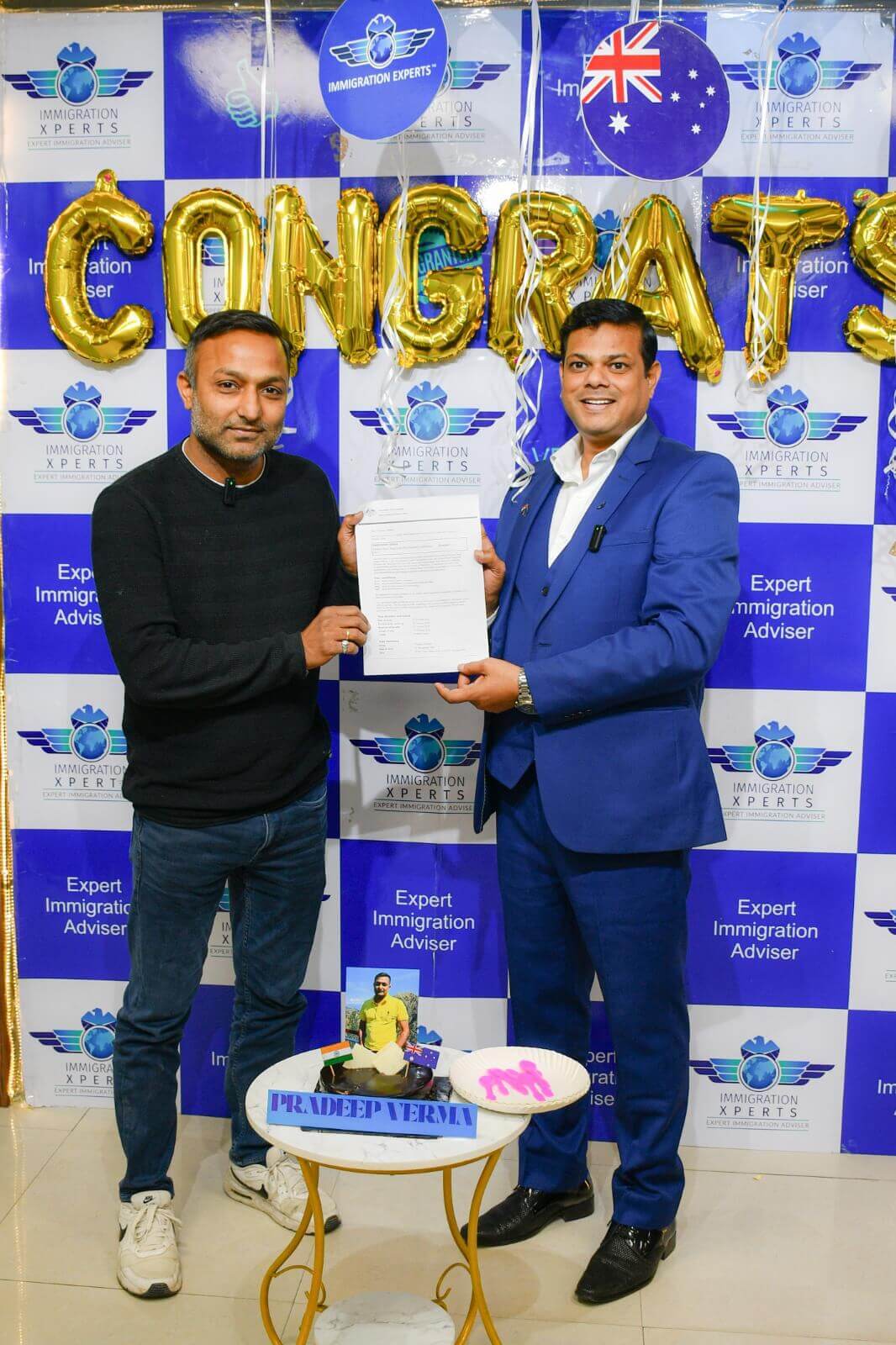What is Trade Recognition Australia (TRA)?
Trade Recognition Australia (TRA) is a national assessing authority that evaluates trade skills, qualifications, and employment experience for migration and employment purposes in Australia. The TRA assessment compares your training, practical skills, and work history with Australian benchmarks to confirm whether your trade expertise meets the standards required for skilled migration or employer-sponsored roles.
For many trade-related visa pathways, a positive TRA outcome is essential. It provides official evidence that your trade skills are recognised and suitable for the Australian labour market. The assessment looks at your formal trade qualifications, competency-based evidence, and hands-on work experience relevant to your nominated occupation.
Benefits of a TRA Skills Assessment
- Formal recognition of trade skills — validates that your training and experience meet Australian industry standards.
- Supporting document for visa applications — TRA outcome letters are accepted by the Department of Home Affairs and sponsoring employers.
- Strengthens migration prospects — a positive TRA result helps you meet eligibility and points test requirements for skilled trade visa pathways.
Types of TRA Assessments
TRA offers multiple assessment pathways depending on your qualifications, work background, and migration purpose:
1. Offshore Skills Assessment Program (OSAP)
For applicants with overseas trade qualifications and work experience who require
a skills assessment for migration purposes.
Eligibility: Relevant trade qualification plus minimum years of
verifiable work experience.
2. Migration Skills Assessment (MSA)
For tradespeople with Australian qualifications or who completed formal training in Australia. Used for General Skilled Migration visas.
3. Recognition of Prior Learning (RPL)
For applicants without formal qualifications but with substantial trade experience. Competency is demonstrated through workplace evidence, third-party verification, and trade tests.
4. Job Ready Program (JRP)
For international students in Australia who completed an Australian trade qualification and want to prove their skills through supervised employment and assessment stages.
5. Temporary Skilled Assessments
For applicants applying for employer-sponsored visas where TRA skills assessment is a visa requirement.
Eligibility Factors
- Qualification level: Certificate III/IV or equivalent trade qualification assessed against the Australian Qualifications Framework (AQF).
- Relevance: Training and experience must align with your nominated trade occupation.
- Work experience: TRA assesses length, recency, and relevance of skilled employment. Requirements vary by trade and qualification level.
- Currency: Ongoing or recent employment strengthens your case. Long employment gaps may reduce assessment favourability.
- Documentation authenticity: Only genuine, verifiable documents are accepted. Non-English documents must have certified English translations.
Required Documents (Typical Checklist)
Personal Documents
- Valid passport copy
- Current CV/resume detailing trade duties, employment dates, and weekly hours
Educational Documents
- Trade qualification certificates (Certificate, Diploma, or equivalent)
- Academic transcripts or training records
Employment Evidence
- Employer reference letters on company letterhead showing: job title, duties, start/end dates, hours per week, salary, contact details, and signatory details
- Payslips, tax records, or employment contracts (where available)
Additional Documents
- Trade competency certificates or licenses (if applicable)
- Certified English translations of non-English documents
- Any statutory declarations or third-party verifications requested by TRA
Step-by-Step Process for TRA Assessment
- Confirm occupation & pathway: Identify which TRA pathway (OSAP, MSA, JRP, RPL, etc.) applies to your trade.
- Prepare documents: Gather qualifications, transcripts, employer references, payslips, and ID. Ensure translations are certified.
- Create TRA account: Register on the TRA online portal and select the correct assessment program.
- Submit application & upload documents: Complete the application form and attach required evidence.
- Pay the assessment fee: Fees vary depending on the program. Payment validates your application.
- Respond to requests: If TRA asks for extra evidence or clarification, submit it promptly.
- Undertake trade test (if required): Some pathways (like OSAP) require practical or technical assessment.
- Receive outcome: TRA issues a formal outcome letter indicating a positive result, conditions, or reasons for refusal.
- Use the result: Submit the TRA outcome as part of your visa application.
Typical Fees & Processing (Guideline)
- Fees: Vary by TRA pathway and applicant location. Always confirm with TRA directly before applying.
- Processing time: Usually 3–6 months depending on completeness of documents and whether a trade test is required.
- Outcome validity: Most TRA results remain valid for visa purposes for a set period (outlined in the outcome letter).
Occupations Commonly Assessed by TRA :
- Automotive Electrician – 321111
- Motor Mechanic (General) – 321211
- Diesel Motor Mechanic – 321212
- Motorcycle Mechanic – 321213
- Small Engine Mechanic – 321214
- Sheetmetal Trades Worker – 322211
- Metal Fabricator – 322311
- Pressure Welder – 322312
- Welder (First Class) – 322313
- Aircraft Maintenance Engineer (Avionics) – 323111
- Aircraft Maintenance Engineer (Mechanical) – 323112
- Aircraft Maintenance Engineer (Structures) – 323113
- Fitter (General) – 323211
- Fitter and Turner – 323212
- Fitter-Welder – 323213
- Metal Machinist (First Class) – 323214
- Locksmith – 323313
- Bricklayer – 331111
- Stonemason – 331112
- Carpenter and Joiner – 331211
- Carpenter – 331212
- Joiner – 331213
- Painting Trades Workers – 332211
- Glazier – 333111
- Fibrous Plasterer – 333211
- Solid Plasterer – 333212
- Wall and Floor Tiler – 333411
- Plumber (General) – 334111
- Airconditioning and Mechanical Services Plumber – 334112
- Drainer – 334113
- Gasfitter – 334114
- Roof Plumber – 334115
- Electrician (General) – 341111
- Electrician (Special Class) – 341112
- Lift Mechanic – 341113
- Airconditioning and Refrigeration Mechanic – 342111
- Electrical Lines Worker – 342211
- Technical Cable Jointer – 342212
- Electronic Equipment Trades Worker – 342313
- Electronic Instrument Trades Worker (General) – 342314
- Electronic Instrument Trades Worker (Special Class) – 342315
- Boat Builder and Repairer – 399111
- Shipwright – 399112
- Dental Hygienist – 411211
- Dental Prosthetist – 411212
- Dental Technician – 411213
- Dental Therapist – 411214
- Hardware Technician – 313111
- ICT Customer Support Officer – 313112
- Blacksmith – 322111
- Electroplater – 322112
- Farrier – 322113
- Metal Casting Trades Worker – 322114
- Metal Polisher – 322115
- Textile, Clothing and Footwear Mechanic – 323215
- Metal Fitters and Machinists NEC – 323299
- Engraver – 323311
- Gunsmith – 323312
- Precision Instrument Maker and Repairer – 323314
- Saw Maker and Repairer – 323315
- Watch and Clock Maker and Repairer – 323316
- Toolmaker – 323412
- Panel Beater – 324111
- Vehicle Body Builder – 324211
- Vehicle Trimmer – 324212
- Vehicle Painter – 324311
- Floor Finisher – 332111
- Roof Tiler – 333311
- Business Machine Mechanic – 342311
- Telecommunications Linesworker – 342413
- Telecommunications Technician – 342414
- Baker – 351111
- Pastry Cook – 351112
- Butcher or Smallgoods Maker – 351211
- Chef – 351311
- Cook – 351411
- Horse Trainer – 361112
- Florist – 362111
- Gardener (General) – 362211
- Arborist – 362212
- Landscape Gardener – 362213
- Greenkeeper – 362311
- Nurseryperson – 362411
- Hairdresser – 391111
- Print Finisher – 392111
- Screen Printer – 392112
- Graphic Pre-Press Trades Worker – 392211
- Printing Machinist – 392311
- Small Offset Printer – 392312
- Canvas Goods Maker – 393111
- Leather Goods Maker – 393112
- Sail Maker – 393113
- Shoemaker – 393114
- Apparel Cutter – 393211
- Clothing Patternmaker – 393212
- Dressmaker or Tailor – 393213
- Upholsterer – 393311
- Cabinetmaker – 394111
- Furniture Finisher – 394211
- Picture Framer – 394212
- Wood Machinist – 394213
- Wood Turner – 394214
- Wood Machinists and Other Wood Trades Workers NEC – 394299
- Chemical Plant Operator – 399211
- Gas or Petroleum Operator – 399212
- Power Generation Plant Operator – 399213
- Gallery or Museum Technician – 399311
- Jeweller – 399411
- Broadcast Transmitter Operator – 399511
- Camera Operator (Film, Television or Video) – 399512
- Light Technician – 399513
- Make Up Artist – 399514
- Musical Instrument Maker or Repairer – 399515
- Sound Technician – 399516
- Television Equipment Operator – 399517
- Signwriter – 399611
- Optical Dispenser – 399913
- Optical Mechanic – 399914
- Technicians and Trades Workers NEC – 399999
- Jockey – 452413
- Driller – 712211
- Radiocommunications Technician – 313211
- Civil Engineering Technician – 312212
- Electrical Engineering Technician – 312312
- Electronic Engineering Technician – 312412
- Mechanical Engineering Technician – 312512
- Child Care Centre Manager – 134111
(TRA covers most trade occupations on the skilled migration list. Check the official TRA occupation list for full details.)
Why Choose Apical Immigration Experts for TRA
We specialize in TRA skills assessments—from selecting the right pathway to compiling the strongest evidence for your trade background. Our team ensures your application is accurate, complete, and aligned with TRA standards.
What sets us apart:
- Correct pathway mapping: Guidance on the right TRA stream for your trade occupation.
- Document precision: Employer references, payslips, and training evidence formatted to TRA requirements.
- RPL expertise: Building strong competency-based portfolios for experienced tradespeople without formal qualifications.
- Gap & risk review: Early checks to resolve inconsistencies in duties, hours, and employment dates.
- Responsive handling: Quick turnaround on TRA requests for additional information.
- Up-to-date policy advice: Guidance based on the latest TRA and visa requirements.
- End-to-end support: From TRA application setup to outcome letter—plus visa application assistance.
FAQs — TRA Skills Assessment
TRA is the official assessing authority for trade occupations in Australia. Skilled migration and employer-sponsored trade visas require a positive TRA assessment.
Check your ANZSCO occupation. If your trade falls under the TRA list, you must apply through the relevant TRA pathway (e.g., OSAP, MSA, JRP).
Yes. TRA usually requires recent, verifiable skilled trade employment. Gaps may weaken your application.
Yes. Through the Recognition of Prior Learning (RPL) pathway, experienced tradespeople can prove competencies using workplace evidence and trade tests.




